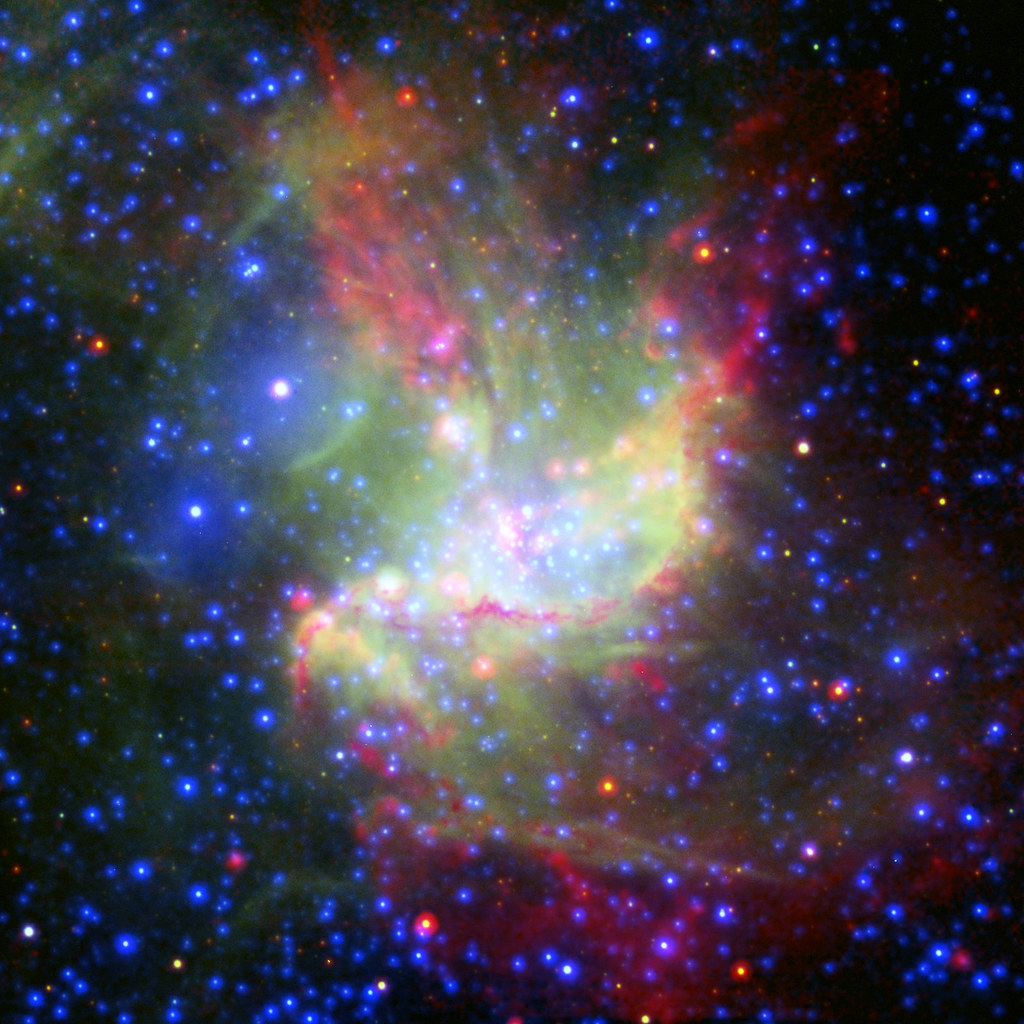As a freshman in college, seeking to expand my limited science knowledge, I enrolled in a Physical Astronomy course, an introductory seminar class that taught students how physicists study the cosmos. At any rate, it introduced us to how that was done in the early 1970s. Thanks to computer tech and so many rapid changes in the field (we were using slide rules!!), the discipline has changed in some respects. I was terrible at the math, never having gotten beyond Algebra II in high school, but I had a terrific professor and loved the material. As may be obvious to readers of this blog, the cosmos and all that is in it provides me with endless opportunities for learning, speculation, and reflection.
Rebecca Elson, whose book A Responsibility to Awe I just finished reading, keenly reminds me of how fascinating the study of the universe can be and how little we know of it. Each decade the science and the theories take immense leaps in measurement and exploration, and each leap reveals how many more questions we have yet to ask, let alone answer. Not just inquiries into the galaxies, but also biological and ecological worlds to explore: salmon, eels, oceans, mountains, our own histories and our own mortality. Elson’s area of study centered on galaxy formation–the chemical evolution of stars, and globular clusters. But she started out collecting rocks with her geologist father who was doing fieldwork in Canada, then studied biology. It wasn’t easy to be a young woman studying the sciences in the 1970s, and she felt she was drifting a bit; writing, however, she felt more sure of. In the essay that ends this collection, she states that the atmosphere at Princeton during her post-doctoral study was “a stronghold not just of men, but of theoreticians” who looked down on work which involved “mere” observation, which is what she had painstakingly been doing in her research in Australia and Cambridge. At Princeton, though, she met a group of poets who encouraged her work and who made her stay at the university more comfortable. Good observation skills make a terrific foundation for poets.
~
If the ocean is like the universe Then waves are stars. If space is like the ocean Then matter is the waves Dictating the rise and fall of floating things... --from "Some Thoughts about the Ocean and the Universe"
She was diagnosed with non-Hodgkins lymphoma when she was 29, died ten years later, and this book is the only example I’ve been able to find of her poetry. But it is revelatory what Elson does with simple language and deep, theoretical concepts as metaphor, topic, or theme. Some of the poems are so brief, yet I find myself thinking about them again and again. Like good haiku, they are not aphoristic–but they linger. Her sense of awe is palpable in these poems; I think that’s what I like most about her poetry.
Evolution We are survivors of immeasurable events, Flung upon some reach of land, Small, wet miracles without instructions, Only the imperative of change. ~ Salmon Running Who isn't driven Up the estuaries Of another's flesh, Up rivers of blood, To spawn close to the heart?
~
A poem titled “OncoMouse, Kitchen Mouse” thanks the laboratory mice whose lives led to the cancer treatments that, for a time, prolonged her life; “Antidotes to Fear of Death” finds her eating the stars, or stirring herself into a young universe. While one late poem is bleak (“There is no poetry to cancer/To the body betraying itself”), another–the last entry in her notebook–observes the flourishing of spring. Much to learn here. Enough admiration that I wish, selfishly, she’d had more time on earth so I could enjoy more of her poems.
~

One more for my reading list. And we (okay I) am thankful you weren’t fully infected by the astronomy bug. I have fond? memories of dragging the large, but basic Dobsonian telescope my then 5 year old son wanted and got for his birthday. Night after night he showed me the cosmos. Fast forward and like many viruses, he was fully infected and developed long astronomy. Today he is a theoretical astrophysicist and professor studying gravitational waves.
LikeLiked by 1 person
Wow!! That is terrific. (Apparently, HE can do math…unlike me).
LikeLike
Beautiful poetry. Thanks for sharing this, I will definitely look up Rebecca Elson and her book.
LikeLike
[…] everything, almost! I found the following passage in Rebecca Elson’s book A Responsibility to Awe, and I feel as she does, though in her case she’s talking about observing and studying the […]
LikeLike